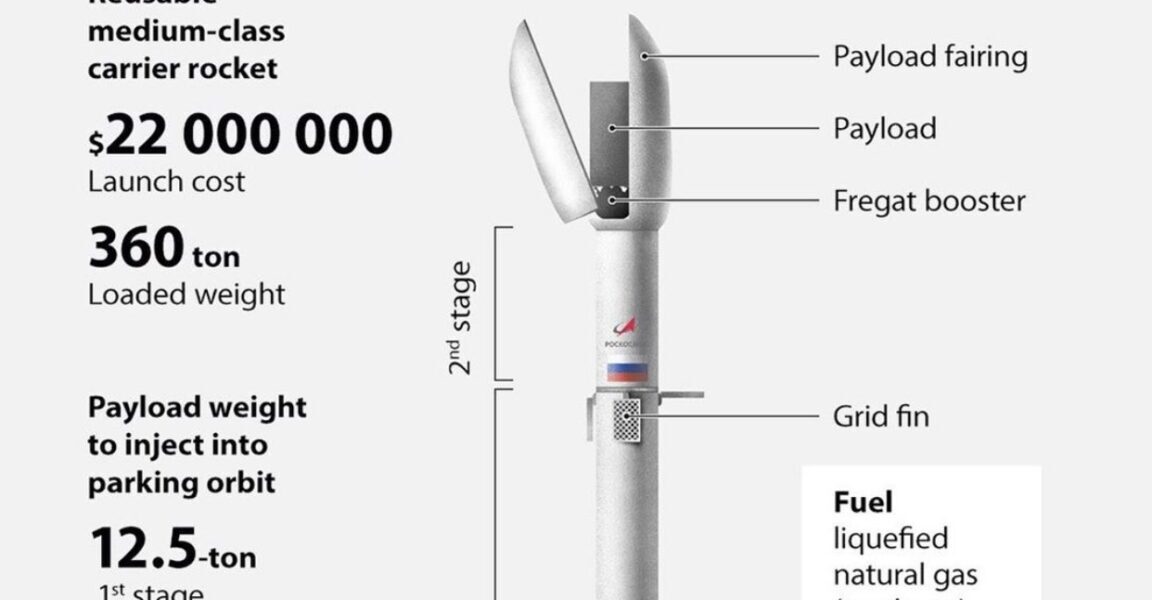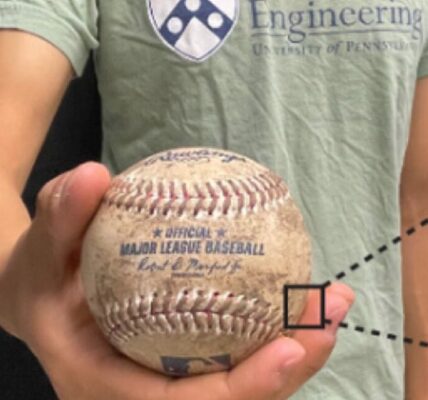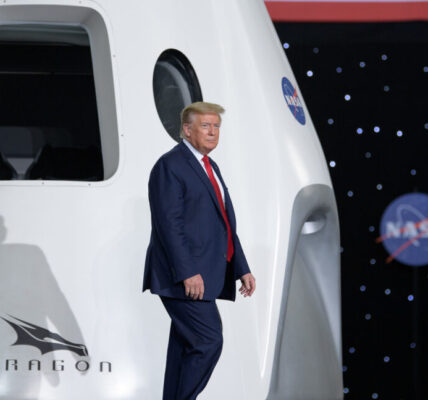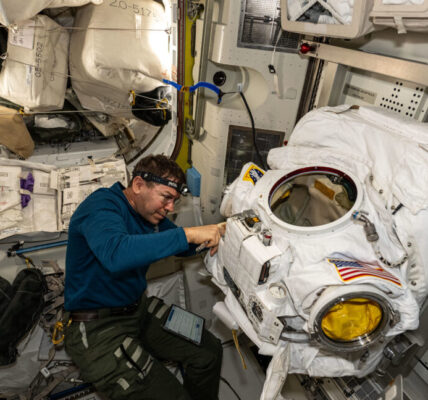Like a lot of competitors in the global launch industry, Russia for a long time dismissed the prospects of a reusable first stage for a rocket.
As late as 2016, an official with the Russian agency that develops strategy for the country’s main space corporation, Roscosmos, concluded, “The economic feasibility of reusable launch systems is not obvious.” In the dismissal of the landing prospects of SpaceX’s Falcon 9 rocket, Russian officials were not alone. Throughout the 2010s, competitors including space agencies in Europe and Japan, and US-based United Launch Alliance, all decided to develop expendable rockets.
However, by 2017, when SpaceX re-flew a Falcon 9 rocket for the first time, the writing was on the wall. “This is a very important step, we sincerely congratulate our colleague on this achievement,” then-Roscosmos CEO Igor Komarov said at the time. He even spoke of developing reusable components, such as rocket engines capable of multiple firings.
A Russian Grasshopper
That was more than seven years ago, however, and not much has happened in Russia since then to foster the development of a reusable rocket vehicle. Yes, Roscosmos unveiled plans for the “Amur” rocket in 2020, which was intended to have a reusable first stage and methane-fueled engines and land like the Falcon 9. But its debut has slipped year for year—originally intended to fly in 2026, its first launch is now expected no earlier than 2030.
Now, however, there is some interesting news from Moscow about plans to develop a prototype vehicle to test the ability to land the Amur rocket’s first stage vertically.
According to the state-run news agency, TASS, construction of this test vehicle will enable the space corporation to solve key challenges. “Next year preparation of an experimental stage of the (Amur) rocket, which everyone is calling ‘Grasshopper,’ will begin,” said Igor Pshenichnikov, the Roscosmos deputy director of the department of future programs. The Russian news article was translated for Ars by Rob Mitchell.




